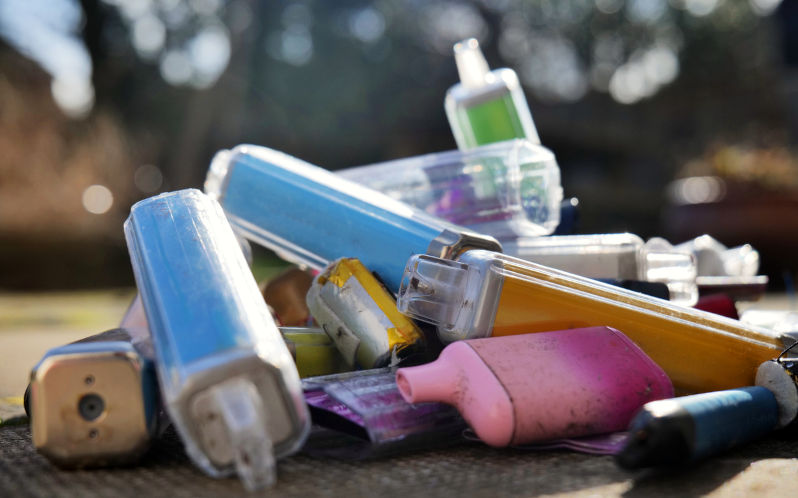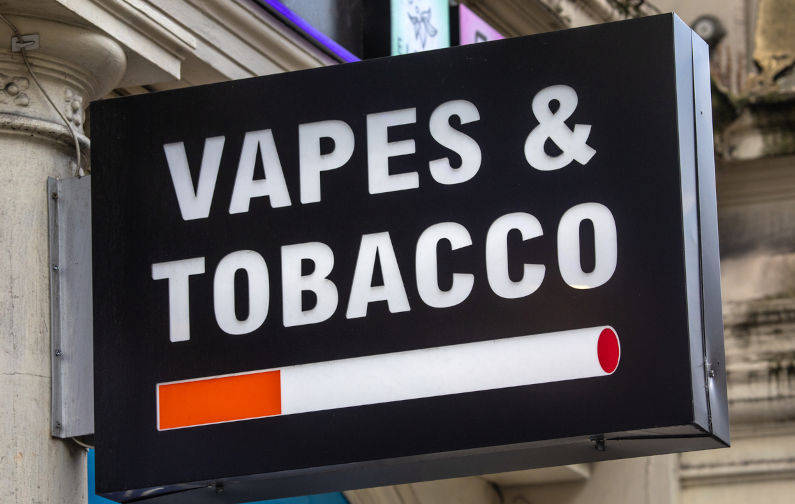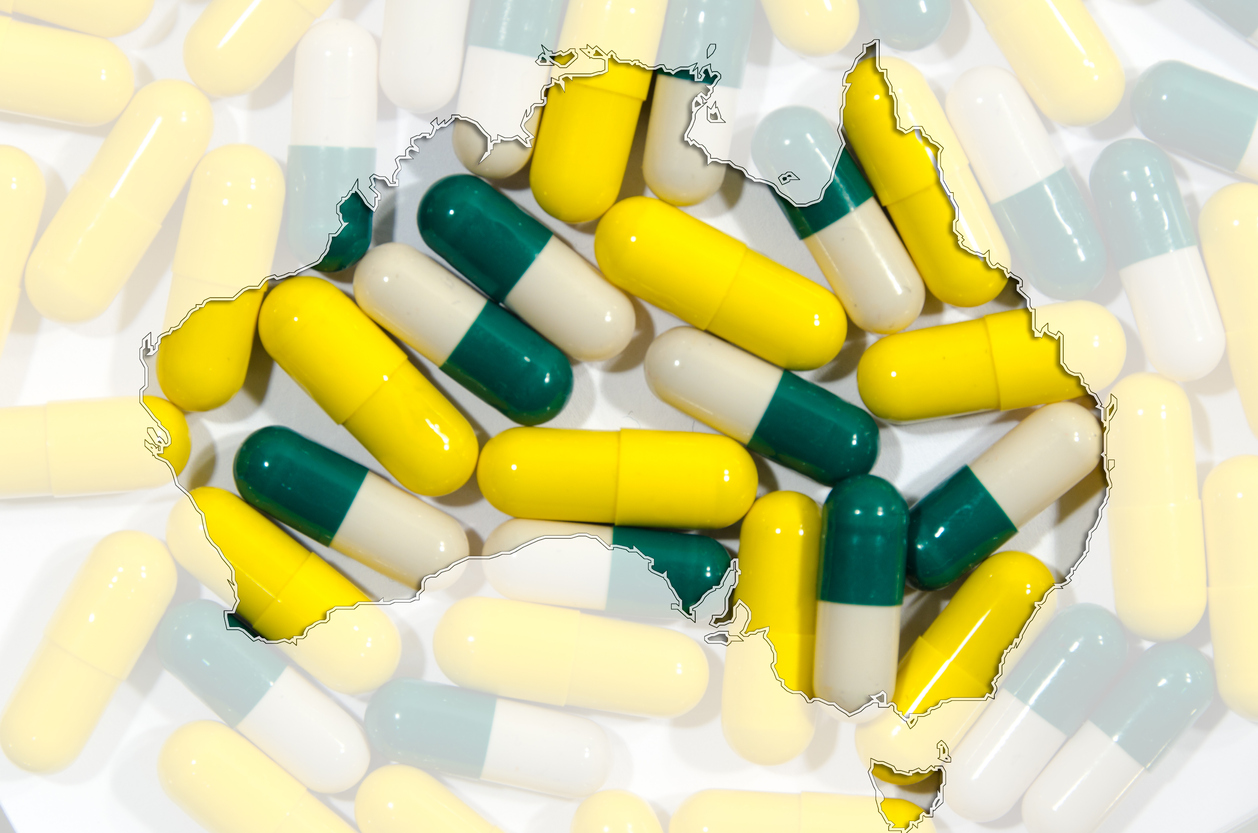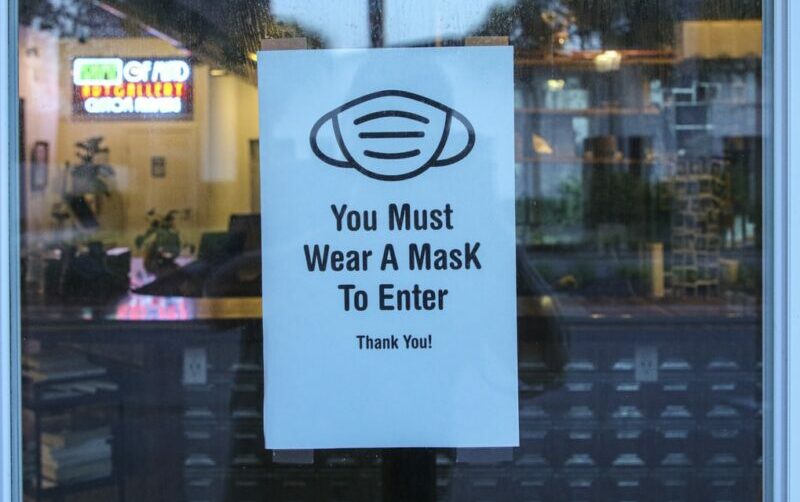Alex's recent articles

3 November 2025
Vaping: A disruptive innovation of smoking and rapidly replacing cigarettes
Recognised as a concept over three decades ago, disruptive innovations are new and improved ways of meeting consumers’ needs that generally sweep away conventional approaches of market-leading firms by a process of creative destruction.

18 October 2025
Harm reduction is ubiquitous and effective so why doesn’t Australia use it for tobacco?
Harm reduction policies are widespread, and generally work, are safe and cost-effective.

11 March 2025
If you bomb us, do we not bleed?
In 1997, the World Health Organisation invited me to be a short-term consultant to visit Iran and advise on HIV control among people who inject drugs and the spread from them to the large low-risk general population. At the time, HIV was spreading rapidly in Iran. I felt honoured to be invited to a country with such an ancient past.

20 December 2024
Decriminalising drugs: "Open secret that most of the NSW Cabinet now support major drug law reform"
As Francis Hodgson Burnett said more than a century ago “at first people refuse to believe that strange new thing can be done, then they begin to hope it can be done, then they see it can be done – then it is done and all the world wonders why it was not done centuries ago.“ This is the spirit that is needed with drug policy.

1 May 2023
Should NSW proceed with a Drug Summit?
A very comprehensive review of drug policy in NSW completed in 2020 was largely ignored for two and a half years. The Commissioner of the Inquiry understandably believes further consideration is redundant. The newly elected NSW government intends to keep a commitment made before the election to conduct a Drug Summit. They are right to do so and for several reasons.

10 November 2022
The ACT legislated to decriminalise possession of personal quantities of illicit drugs
By the time the ACT Legislative Assembly passed legislation on 20 October 2022 to commence the decriminalisation of personal quantities of all illicit drugs in October 2023, drug law reform was already well on its way around the world.

28 March 2022
Why vaping will be accepted as Australia's response to tobacco
Vaping represents a historic opportunity to dramatically reduce Australia’s annual loss of 21,000 lives from smoking. But understandable intense hatred of tobacco companies and a strong preference to eliminate nicotine use has contributed to a hostility to vaping in Australia which is irrational and unsustainable.

23 March 2022
The return of the state? The role of government in managing the pandemic
Many countries with very high rates of COVID infection and pandemic deaths had governments reluctant to intervene to protect public health because of a strong belief in small government.

25 January 2022
Four strategies to help vaccinate the world against COVID-19
To bring the COVID-19 pandemic under control, vaccination rates in the most vulnerable countries need to increase.

10 December 2021
The price of inequality: vaccine nationalism and the Omicron variant
Australia's ability to move on from the pandemic has been possible by hoarding vaccines and ignoring the vast majority of the world's population.

8 November 2021
The case for an Australian heroin trial: strong then, even stronger now
Australia once declined the opportunity to take a fresh, effective tack against heroin addiction. We should not lose a second chance.

4 November 2021
Why the 'war on drugs' and law enforcement is ultimately futile
A national drug policy based heavily on attempts to interrupt supply has been an expensive failure and urgently needs reform.
4 April 2021
Should pleasure from illicit drugs be included in consideration of drug policy?
In recent decades, the notion that law enforcement approaches to illicit drugs has failed, moved from heresy to orthodoxy. But drug policy till now has only been considered as the prevention of harm. It’s time for policymakers and the community to accept that the pursuit of pleasure should also be a consideration. A distinguished US Professor of Psychology has written a new book discussing his pleasure from using currently illicit drugs.
18 March 2021
Police drug busts divert our attention from policy failure
Harm reduction is used in many policy areas and found to be generally effective, safe, cost-effective and well accepted. But when pragmatic harm reduction is applied to psychoactive drugs, it is often fiercely resisted by those preferring prohibition. The war on drugs provides media with attractive eye candy in the form of mounds of recently intercepted illicit drugs.
7 December 2020
NSW Cabinet responds to a Special Commission of Inquiry into the Drug ‘Ice’
Drug policy has fallen into a deep rut in Australia: a growing consensus recognises that current arrangements have failed abjectly while governments and oppositions are unwilling to support significant reform. In NSW this past week, Cabinet was deeply divided about how to respond to a strong report recommending some modest reform.
6 November 2019
ALEX WODAK. Draft recommendations supporting drug decriminalisation released by the NSW Special Commission of Inquiry into Ice
The Commissioner of the NSW Special Commission of Inquiry into Ice, Dan Howard QC, will now consider what amounts to a draft report by Council Assisting, Sally Dowling SC. He will submit his officIal report in January, to be then considered by the NSW Government. Council Assisting accepts that relying heavily on attempts to cut drug supplies has not only failed but seems to have made a bad situation even worse. The 104 draft recommendations support increased emphasis on harm reduction, expanded and improved drug treatment achieved with enhanced funding and some form of drug decriminalisation.
17 October 2019
ALEX WODAK. What can be done to improve the safety of young people taking illegal drugs at youth music events?
Leaked recommendations from a NSW Coronial inquiry into the deaths of six young people after taking illegal drugs at youth music events highlights the resistance of Australian governments to harm reduction and their entrenched reliance on restricting the supply of drugs despite repeated failures of this approach.
21 November 2018
ALEX WODAK. Drug law reform in the 2018 US mid term elections.The 2018 US midterm elections has important lessons for Australia regarding drug law reform. In ballot initiatives and elections for office, voters often supported drug law reform with only one major defeat. Presidential election years generally have many more ballot initiatives on drug policy.
The 2018 US midterm elections has important lessons for Australia regarding drug law reform. In ballot initiatives and elections for office, voters often supported drug law reform with only one major defeat. Presidential election years generally have many more ballot initiatives on drug policy.
11 August 2018
ALEX WODAK. Drug Reform Series- Portugal’s successful drug law reform in 2001
Treating personal drug use as an administrative offence along the lines of a parking violation has worked well for Portugal. It has not only been a public health and public policy success but also a political one.
7 August 2018
ALEX WODAK. Drug Reform Series -Drug policy: prohibition and punishment is just not effective
The failure and futility of drug prohibition has been well accepted among political elites in Australia for a long time. It is time we debated the merits of regulation, combined with targeted health and social intervention, rather than blunt prohibition and punishment. Such an approach is likely to be more effective, and fair.
24 April 2018
ALEX WODAK. Why is the drug policy debate in Australia stuck?
Drug policy in Australia has been debated for decades but doesn’t seem to be getting close to resolution. However some progress is being made. Examples include the Victorian government's decision in 2017 to establish a Medically Supervised Injecting Centre in Melbourne and the ACT government's in principle decision in 2017 to allow a trial of pill testing. Social policy reform is always slow. The drug policy debate has some particular characteristics that make it especially difficult.
2 November 2017
PETER BROOKS AND ALEX WODAK. A response to the open letter from Crown Resorts on gambling.
On Tuesday 31 October a rally to support Women against Gambling, coordinated by the Alliance for Gambling Reform ( pokiesplayyou.org.au), was held outside the Victorian Parliament. This was (amongst others) supported by Fiona Patten MLC to send a message to MPs not to weaken laws on gambling – which may occur when Parliament returns next week.
31 May 2017
Drug policy and why Victoria deserves better from Premier Daniel Andrews. Part 3 of 3.
Bad drug policy has been good politics for several decades. We can thank US President Richard Nixon for this discovery.
30 May 2017
ALEX WODAK. How can making drugs easier to access save lives? 10 FAQs about drug law reform. Part 2 of 3.
Police, prison officers and politicians are standing side-by-side with drug users to call for law reform. They say the current practice of jailing people for personal use and possession instead of focusing on their health and safety leads to unacceptable outcomes: lives lost and lives ruined. But it’s hard to get your head around the idea that making drugs more easily available could actually reduce the risks. Here are answers to some frequently asked questions about drug law reform.
27 January 2017
ALEX WODAK. Do large seizures of illicit drugs really make a difference?
Large seizures of illicit drugs always attract considerable publicity, and are no doubt very positive for the law enforcement agencies and politicians involved. But do they benefit the community?
27 June 2016
ALEX WODAK. Global drug prohibition and national security
Buddhists say that everything has a cause and everything has an effect. Violence, oppressed minorities, rampant corruption and failed states are both causes and effects of global drug prohibition. Serious threats to national security are an important but rarely discussed cost of drug prohibition.
23 February 2016
Alex Wodak. Endgame in the protracted drug policy debate: are we there yet?
The long running debate about illicit drugs policy has moved a great deal in the last five years. But social policy reform is a different matter from a debate. Actual reform usually takes many decades. The recent growing consensus regarding the abject failure of a criminal justice dominated approach to drugs is very encouraging. Retired and even serving police commissioners have been lining up before the microphones to acknowledge the comprehensive failure of efforts to date. The seizure announced 16 February of 720 litres liquid methamphetamine, said to be worth $1.2 billion, represents the largest drug bust in Australia’s...
3 September 2015
Alex Wodak. Incarcerating Nations
In the 18th C Britain struggled to accommodate a growing prison population incarcerated for social reasons, mainly poverty. After the America revolution in 1776, Britain became unable to keep sending its excess prisoners to America. The solution was to establish a prison colony in Australia in 1788. Britain never learnt that incarceration is not a solution for serious social problems. Neither did the USA. Nor for that matter did Australia. With 130 prisoners per 100,000 residents in 20012/13, Australia had the 15th highest incarceration rate of the OECD countries, far behind the OECD and world leader, the USA (701)...
29 May 2015
Alex Wodak. How should medicinal cannabis be provided lawfully in Australia?
Current Affairs Ms Sussan Ley, the Federal Health Minister, recently acknowledged that medicinal cannabis was likely to proceed in Australia but advocated proceeding cautiously. A Private Members Bill is under consideration and seems to have strong support including backing from both sides of the aisle. So the question is now increasingly moving from ‘whether’ to ‘how’ to proceed with medicinal cannabis. Hippocrates said that doctors should ‘cure sometimes, treat often, and comfort always’. Medicinal cannabis is about the need for the health care system to try to ‘comfort always’. What should the lawful provision of medicinal cannabis in Australia hope to...
7 May 2015
Alex Wodak. Prohibition and its discontents: who really killed Chan and Sukumaran?
The fall out from Indonesia’s execution of Chan and Sukumaran for drug trafficking continues. In their unprecedented press conference on 3 May, the leaders of the Australian Federal Police argued that under existing laws and guidelines, they were obliged to share intelligence with their Indonesian counterparts. Moreover, under similar conditions in future, the AFP expects that similar decisions will be made. The basic problems are that many young Australians travel to countries that still retain the death penalty for drug trafficking (and some other offences) and prohibition is still the global drug policy. So the execution of Australians and citizens...
17 April 2015
Alex Wodak. The toxic combination of illicit drugs and politics: Australia confronts ice
John Ehrlichman, the Watergate conspirator, claimed to have come up with the idea of waging a war on drugs while he was a member of President Nixon’s ‘Committee for the Re-Election of the President’, wonderfully referred to as ‘CREEP’. The aim, Ehrlichman told Nixon, was to ensure that the elderly wealthy white voters who turned out in such large numbers to vote for Nixon in 1968 would turn out again in 1972 on polling day. The plan was to appeal to their contempt for the young, poor and black using illicit drugs as the perfect ‘dog whistle’. Despite the albatross...
25 March 2015
Alex Wodak. Why is illicit drug use considered evil?
It seems self-evident to many that the use of illicit drugs is evil. But why? When pressed, the most common response to this question is that illicit drug use is evil because it is against the law. So the next question is ‘why is the use of certain drugs illegal?’ State parliaments in Australia started banning the use of certain drugs even before Federation. In the last half century, Australia signed and ratified three international drug treaties (1961, 1971, 1988) which required domestic parliaments to pass laws imposing criminal sanctions on people who use or traffic drugs. In the...
10 March 2015
Alex Wodak. Reducing the demand for illicit drugs
At his Congressional confirmation hearing in January 2001, the then Secretary of Defense-designate Donald Rumsfeld was asked whether US drug problems were best attacked by reducing demand or targeting drug supplies. Rumsfeld said that he believed that illicit drug use was overwhelmingly a demand problem. He added, If demand persists, it's going to find ways to get what it wants and if it isn't from Colombia, it's going to be from someplace else. This might have been an unconventional view 14 years ago but it’s becoming a mainstream perspective these days. The conventional view is that young people make...
7 March 2015
Alex Wodak. The current imbalance between public and private interests.
The public interest, meaning ‘the welfare or wellbeing of the general public’, has always competed with private interests. Furthermore, public and private interests will always be in competition. What is so unusual about the current tension is the extreme imbalance: these days, private interests almost always get what they want. The policy domination by huge companies and extremely wealthy individuals has severe adverse consequences for the community in areas such as health, social cohesion and the economy. The current extreme imbalance between private and public interests is now not merely an Australian phenomenon but is also international. Examples of this policy...
